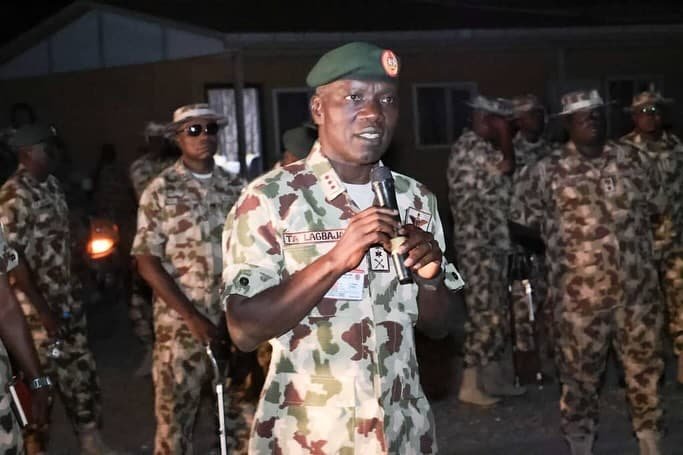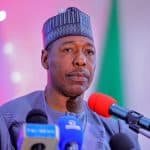Lieutenant General Taoreed Lagbaja, Chief of Army Staff (COAS), has rebuffed appeals for self-defense in the aftermath of assaults in Plateau.
Over 195 people were killed and hundreds were injured in the most recent strikes in the state’s northwestern region.
While the news has sparked outrage both inside and outside the country, the Army Chief feels self-defense equates to “anarchy.”
“I do not support that. I think that is a call for anarchy,” he said on Sunday on Channels Television’s end-of-year programme “2023: Year Of Transition”.
He believes that the Nigerian Army can defend the country and that there is no need for self-defense.
He also stated that extra troops are being deployed to the Plateau as part of measures to improve security.
“I have reeled out our plans for 2024 for Plateau State. The troops that we are deploying to Plateau, are on their way to Plateau now,” he said.
“This night or first light tomorrow, they should be on the Plateau. We are sending more equipment to enhance the efficiency of the troops.”
The assaults were alleged to have impacted over 50 communities, prompting President Bola Tinubu to urge for a comprehensive investigation.
The attacks have also sparked international outrage, with the UN pressing the Federal Government to conduct a comprehensive investigation into the crimes.
“I call on the Nigerian authorities to investigate this incident promptly, thoroughly, and independently, consistent with international human rights law, and to hold those responsible to account in fair trials,” UN rights chief Volker Turk said in a statement.
“The cycle of impunity fueling recurrent violence must be urgently broken. The government should also take meaningful steps to address the underlying root causes and ensure the non-recurrence of this devastating violence.” Bandit groups have long terrorised northern and central Nigeria, operating from deep in the bush and invading communities to pillage and abduct citizens for ransom.
Competition for natural resources between nomadic herders and farmers has worsened social tensions and spurred violence, which has been compounded by fast population expansion and climate challenges.





